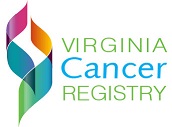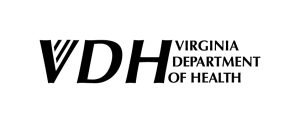
2022 - Replenishing the Reporting Field from Within: From Partnership to Internship
This year the VCR chose to focus on their revamping their internship program. Although VCR had brought on interns in the past, there was not a structured plan or recruitment process in place. There was also no plan to prepare them to sit for the CTR exam. Through the use of FLccSC , VCR’s web-based learning portal and other hands-on training, interns are now expected to complete in-house training and prepare to sit for the exam. This partnership and agreement between interns and the registry allows for reward on both ends, as the interns can broaden their knowledge base, while pitching in to assist the registry in meeting ongoing activities and goals. As one full year of the program comes to a close, VCR has found that to this point it has been a success on several levels. It has allowed the registry to be a better resource both Virginia citizens and VCR stakeholders, through this new added dimension of the registry. We have also been able to keep our internal staff well-trained and sharp, through the training of others, which has also fostered a sense of engagement and inclusion. Additionally, VCR has been able to more fully develop our FLccSC learning platform, and gain better insight on the capability of other internal resources and tools, such as Web Plus. But most importantly, we have been able to all learn and work collectively toward a common goal. That goal, as described in this year’s NPCR Success Story, is “Success on all levels!”
2021 – From Data to Dashboards: Increasing Accessibility and User Engagement through Data Distribution Transformation to Digital Platforms
The 2021 NPCR Success Story is on the Virginia Cancer Dashboard, which is located on the Virginia Cancer Registry website and can be accessed by clicking the blue button below. The dashboard demonstrates the burden of cancer incidence and mortality in Virginia. The dashboard covers aggregate data for the years 2014 - 2018 for both incidence and mortality statistics of the following cancers: Cervix Uteri, Colorectal, Female Breast, Hodgkin Lymphoma, Kidney and Renal Pelvis, Leukemia, Liver and Intrahepatic Bile Duct, Lung & Bronchus, Melanoma of the Skin, Myeloma, Non-Hodgkin Lymphoma, Oral Cavity & Pharynx, Ovary, Pancreas, Prostate, and Thyroid.
Data visualization is the graphical representation of information and data. Through the use of interactive visual elements like charts and graphs, data visualization tools are better able to provide an accessible interpretation of patterns and trends in data.
The VCR’s web-based Interactive cancer dashboard visually organizes key cancer data contained within the VCR database and presents it in a visually appealing, user friendly, online platform. Presenting the cancer burden in Virginia this way allows users to have VCR cancer data at their fingertips 24/7, from anywhere in the world. The VCR cancer dashboard keeps users constantly informed and updated, just as an automobile dashboard keeps the driver informed.
2020 - Registry workgroup clears hurdles to cross finish line of software implementation!
In 2020 VCR staff came together to develop an in-house workgroup to perform thorough testing, troubleshooting, and initiated a statewide training plan to get the Virgina Web Plus cancer reporting portal off the ground. The registry overcame several hurdles including stringent statewide security restrictions, agency limitations in response to the COVID-19 pandemic, and budget constraints to complete this mission. Most of this work was completed remotely, as VCR grappled with the limitations and constraints that came with the COVID19 pandemic. VCR staff didn’t skip a beat, as they quickly adapted to a new work processes and procedures. To date, Virginia Web Plus has over 150 users, and all large hospitals in the state and many physician offices, clinics, and labs are reporting their cancer cases 100% electronically online.



